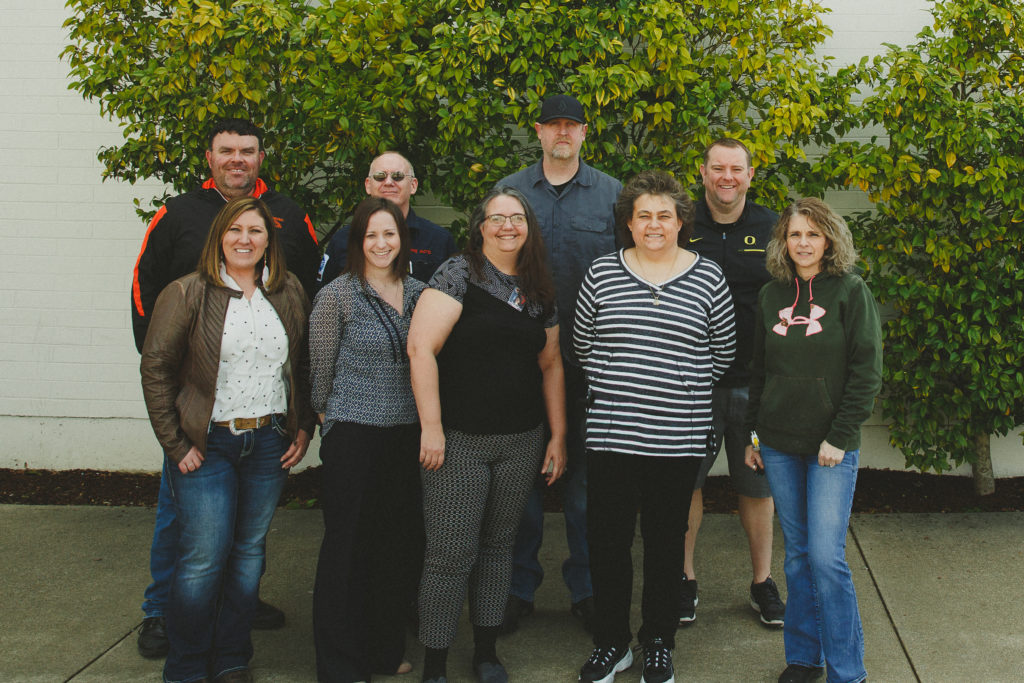Ensuring equity
RHS team receives national honor
A Roseburg High School team focused on equity in the classroom has been honored by the National Alliance for Partnerships in Equity for its work that resulted in a major increase in the number of female students taking welding classes.
The team, led by RHS instructor and CTE Division Lead Sheri Carson, received the NAPE Teamwork award April 30 at the National Summit for Educational Equity in Arlington, Virginia. The group was part of the first cohort of NAPE’s Oregon Program Improvement Process for Equity – sponsored by the Oregon Department of Education and the Office of Community Colleges and Workforce Development. From 2015 to the present, cohorts have worked to identify equity gaps in CTE and STEM, and identify evidence- and research-based strategies to close those gaps.

RHS team members include Brett Steinacher (back row, from left), Don Zell, Craig Stinnett and Richie Charles, and (front row, from left) Angela Chenoweth, Analicia Nicholson, Larina Warnock, Sheri Carson and Lisa Danville. Not pictured are Kyle Dever and Mary Malepsy.
The team initially focused on determining the reasons behind low participation of girls in manufacturing classes at RHS. Their work ultimately led to an increased enrollment in welding classes, from four girls in fall 2015 to 38 girls in spring 2016.
“Our team has continued to see success in recruiting and retaining female students in welding and other manufacturing programs at Roseburg High School,” Carson said.
The team implemented several strategies to address the gap in 2015. The first strategy involved purchasing welding gear in smaller sizes, which allowed students to operate the equipment properly. The school also introduced a “freshman cruise” class in which all first-year students rotate through each Career and Technical Education program over two weeks. Emphasis was placed on encouraging female participation in the welding class during the freshman cruise, and the students were subsequently highlighted during a community open house.
In addition, Douglas Education Service District Assistant Superintendent Analicia Nicholson, who served as the team’s PIPE project site lead, allocated Carl Perkins Funding funding to use NAPE’s Explore Nontraditional Careers Toolkit to help educators recognize and address cultural stereotypes and ways in which implicit biases can create barriers to students’ success in nontraditional career preparation programs.
Focus is growing locally and across the country on the need to expand CTE offerings to provide students with more opportunities after graduation and to fill high-demand, high-wage jobs.
Gwen Soderberg-Chase, director of Douglas County Partners for Student Success, congratulated the RHS team for realizing the need to ensure CTE expansion is occurring equitably.
“As these pathways to future careers open up thanks to funding sources such as Measure 98 and Perkins grant dollars, it is vital that all students are encouraged to explore these options,” Soderberg-Chase said.
Leave a Reply
You must be logged in to post a comment.